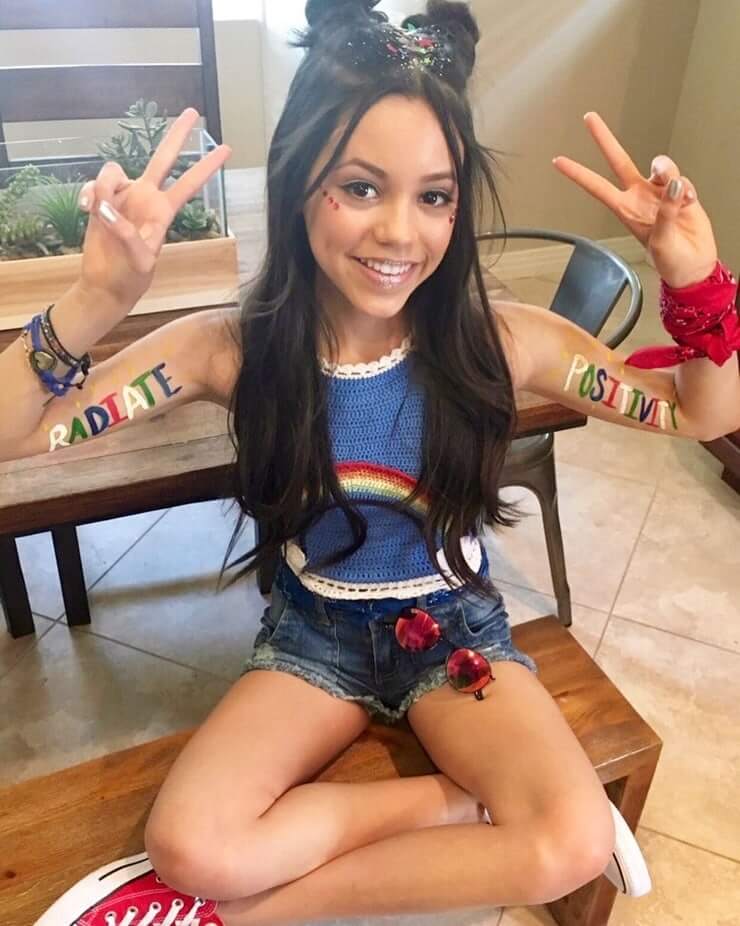Jenna Ortega XXX: Uncensored Videos & Hot Scenes - Watch Now!
In the whirlwind of modern celebrity, where image is everything, has the line between artistry and exploitation become blurred? The relentless pursuit of viewership and the ever-present gaze of the internet have created a landscape where boundaries are constantly tested, and the potential for a star's image to be commodified is greater than ever.
Jenna Ortega, a name that has become synonymous with contemporary success, particularly among younger audiences, embodies the current era's challenges and triumphs. Born on September 27, 2002, in Coachella Valley, California, her ascent to fame has been meteoric. From her early role as Harley Diaz in the Disney Channel series "Stuck in the Middle," for which she earned an Imagen Award, to her recent headline-making performances, Ortega has skillfully navigated the complexities of the entertainment industry. Her ability to captivate audiences in projects like "Scream" and "Wednesday" has solidified her position as a leading figure in a generation increasingly influenced by digital platforms and viral trends. However, the path to success, especially for those in the public eye, is often paved with scrutiny and the potential for misrepresentation.
| Full Name: | Jenna Marie Ortega |
| Date of Birth: | September 27, 2002 |
| Place of Birth: | Coachella Valley, California |
| Occupation: | Actress |
| Years Active: | 2012present |
| Notable Roles: | Harley Diaz in "Stuck in the Middle," Wednesday Addams in "Wednesday," Tara Carpenter in "Scream" franchise |
| Awards: | Imagen Award (for "Stuck in the Middle") |
| Official Website: | IMDb |
The entertainment industry, fueled by its insatiable need for new content, is not immune to the darker aspects of digital culture. The availability of explicit content, including deepfakes and unauthorized material, poses a direct threat to an artist's agency and reputation. The existence of such content raises serious questions about consent, privacy, and the potential for long-term damage to an individual's personal and professional life. The very nature of the internet, its global reach, and the speed at which information (both accurate and fabricated) spreads, make it exceptionally difficult to control or completely remove damaging content once it has been disseminated.
Ortega's career trajectory is marked by both critically acclaimed roles and more recent, and at times, controversial projects. Her starring role in "Wednesday," a series that reimagines the iconic Addams Family character, catapulted her to global fame, earning her critical praise and a devoted fan base. This success underscores her ability to connect with audiences and her clear talent. However, discussions around her work have also touched upon intimate scenes, and the associated press tours have brought her face-to-face with the realities of maintaining public image amidst the challenges of the modern media landscape.
Ortega's involvement in the horror genre, with films like "X" and the "Scream" franchise, reflects her willingness to explore diverse roles and push creative boundaries. In "X," she expressed her enthusiasm for the script, highlighting her adventurous approach to her craft. Yet, the intersection of art and the exploitation of celebrity has become increasingly visible, with the constant possibility of her likeness being exploited, leading to the propagation of content that disregards her consent or creative input. The very nature of deepfakes and the ease with which they can be produced and shared presents an ongoing challenge for those in the spotlight.
The actress recently faced scrutiny for an intimate scene, highlighting the ongoing debate of creative freedom and the ever-present risk of her work becoming fodder for unauthorized distribution. While the industry has seen some efforts to address these issues, the challenge remains, with the potential for the material to be taken out of context or used for illicit purposes.
The actress's schedule further illustrates this reality. Her absence from "You" Season 5, due to a scheduling conflict with the second season of "Wednesday," is a symptom of an industry that demands a relentless pace. While this commitment to her career reflects her drive, it also underlines the pressure faced by young actors, and the need to manage their image and projects carefully.
Beyond the professional realm, the pervasiveness of certain types of content has broader implications. The emergence of "deepfake" technology, which uses artificial intelligence to create convincing but fabricated videos, is a significant threat. These can be used to create explicit content that misrepresents individuals, and their rapid proliferation makes it increasingly difficult to combat their presence online. This is a key problem for the industry, as these videos often target celebrities and use their likeness without consent.
The potential for exploitation extends to the use of an individual's image without their consent. The ease with which content can be taken out of context or manipulated is a significant concern. Social media's role in amplifying these issues cannot be ignored. The speed at which content can spread online and the potential for it to go viral can lead to an increased risk of reputational damage and emotional distress. This makes it vital for those in the industry to maintain control over their image and to have support systems in place to navigate the pressures of public life.
This brings us to the topic of "Sheila Ortega" and others, mentioned in the provided dataset, and their association with explicit content. The discussion necessitates an examination of the distribution channels, the potential for misuse, and the legal ramifications. The focus should be on protecting the artists and promoting their work. The legal and ethical obligations are very important.
The content also touches upon the broader issues facing women in the industry, specifically around literacy. The creation and dissemination of such content are a direct assault on personal agency. The potential for exploitation can affect all, regardless of their level of fame. There is also a wider societal implication, as these actions are not limited to those in the spotlight; the same tools and methods are employed to generate content that affects private individuals, including those who are not public figures.
Ultimately, the challenge is to protect the actors while addressing the larger issues in the digital era. To accomplish this, there must be a multifaceted approach. Involving law enforcement and other authorities is essential to hold people accountable. As digital literacy grows, so too must the sophistication of the strategies used to protect artists. These issues highlight the urgent need for greater awareness and vigilance in the online world.


